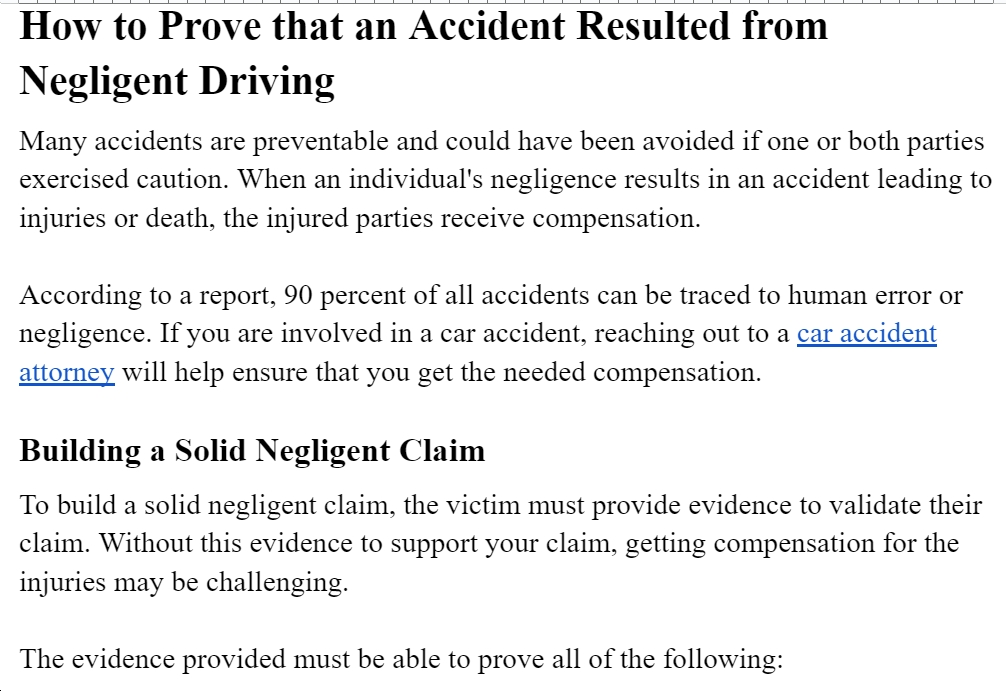About JAMB
The Joint Admissions and Matriculation Board (JAMB) is a prominent Nigerian entrance examination board responsible for conducting various entrance examinations for tertiary-level institutions. JAMB’s primary role is to conduct the Unified Tertiary Matriculation Examination (UTME), which serves as an entrance examination for prospective undergraduates seeking admission into Nigerian universities. Additionally, JAMB administers similar examinations for applicants to Nigerian public and private monotechnics, polytechnics, and colleges of education.
To be eligible to sit for the JAMB examination, candidates must have obtained the West Africa Senior School Certificate (WASSCE) conducted annually by the West African Examinations Council (WAEC) or an equivalent qualification, such as the National Examination Council (Nigeria) Senior School Certificate Examination (NECO SSCE). JAMB was established in 1978, and its pioneer registrar was Michael Saidu Angulu, who served in this capacity from its inception until 1986.
The current registrar of JAMB is Prof Ishaq Oloyede. He was appointed to this position by President Muhammadu Buhari in August 2016. The JAMB registration for the year 2023 commenced on January 14th, 2023, and was scheduled to close on February 14th, 2023. This indicates the specific dates for registration during that year. JAMB plays a vital role in the Nigerian educational system by conducting entrance examinations that determine eligibility for admission into tertiary-level institutions. It ensures a standardized and fair assessment of candidates’ qualifications, helping to streamline the admission process in Nigerian universities and other higher education institutions.
Fresherslive consistently delivers ongoing news and trending topics in a straightforward manner, making it effortless for you to stay informed. We prioritize clarity and simplicity in our communication.
Is JAMB Form Out?
Yes, the Joint Admission and Matriculation Board (JAMB) has officially released the JAMB form for the 2024/2025 Unified Tertiary Matriculation Examination (UTME) and Direct Entry (DE) candidates. The registration portal is now open for interested candidates. This is a significant development for all prospective Jambites, both within Nigeria and abroad, who aspire to secure admission into tertiary institutions of learning. The release of the JAMB form marks the beginning of the registration process for the upcoming UTME and Direct Entry examinations.
Prospective candidates should take note of this important announcement and promptly visit the official JAMB website to access the registration portal and complete their registration for the 2024/2025 UTME or Direct Entry. It is advisable for candidates to thoroughly read and follow the registration guidelines provided by JAMB to ensure a smooth and successful registration process. Additionally, candidates should stay updated with any further announcements or changes that may arise during the registration period.
TRENDING
When will JAMB Form Out for 2024?
The JAMB (Joint Admission and Matriculation Board) registration for the 2024 Unified Tertiary Matriculation Examination (UTME) and Direct Entry (DE) candidates will commence on January 14th, 2024. This date signifies the official start of the registration process for interested candidates. Candidates are advised to take note of this start date and ensure they initiate their registration within the specified time frame. It’s essential to begin the registration process early to avoid any last-minute rush or complications.
The JAMB registration deadline for the 2024 UTME and DE candidates is set for February 14th, 2024. This deadline marks the closing date for registration, and candidates must complete their registration and submit all required documents before this cutoff date. The JAMB form for the 2024 UTME and DE candidates will be out on January 14th, 2024, and the registration window will remain open until February 14th, 2024. Prospective candidates should adhere to these dates to ensure they do not miss out on the registration opportunity for this year’s examinations.
How to Register for JAMB 2024?
To register for the JAMB (Joint Admission and Matriculation Board) 2024/2025 Unified Tertiary Matriculation Examination (UTME) and Direct Entry (DE), candidates can follow these steps:
-
Go to the official website of JAMB
-
If you do not already have a JAMB profile, you will need to create one. This typically involves providing your personal information, including your name, email address, and phone number. Make sure to use valid and accurate information.
-
After creating your profile, you will need to make a payment for the JAMB form. Payment can be made through various methods, such as bank payment, online payment, or using the JAMB-approved payment platforms. Follow the instructions on the JAMB portal for payment options.
-
Once your payment is confirmed, you will receive a unique JAMB e-PIN. This PIN is essential for the registration process and should be kept safe.
-
Log in to your JAMB profile using your email and password. Then, navigate to the registration section and fill out the registration form. Provide accurate information about your personal details, choice of examination center, and the subjects you intend to take.
-
You will be required to upload a recent passport photograph during the registration process. Ensure that the photograph meets the specified JAMB requirements in terms of size and format.
-
Double-check all the information you have provided to ensure accuracy. Once you are satisfied with the details you have entered, confirm your registration.
-
After successful registration, you will be able to print your JAMB registration slip. This slip contains important information such as your examination date, time, and venue. Keep it safe as you will need it on the day of the examination.
-
With your registration completed, begin your preparation for the JAMB examination. Utilize study materials, past questions, and practice tests to enhance your readiness.
It is crucial to register as soon as possible to avoid any last-minute rush or technical issues. Additionally, make sure to adhere to all guidelines and instructions provided by JAMB throughout the registration process. Good luck with your JAMB 2024/2025 UTME or DE registration and examination!
Details About JAMB 2024
Specifications |
Details |
|
JAMB Registration Start Date |
January 14th, 2024 |
|
JAMB Registration Deadline |
February 14th, 2024 |
|
Total Expenses for Registration Procedure |
N4,700 |
|
Date to Reprint JAMB Mock Slip |
March 25th, 2024 |
|
JAMB Mock Exam Date |
March 30th, 2024 |
|
Jamb Rescheduled Mock |
April 18th, 2024 |
|
JAMB Compulsory Novel |
“Life Changer” by Khadija A. Jalli |
|
JAMB Examination Reprinting Date |
April 22nd, 2024 |
|
JAMB Examination Date |
April 25th, 2024 to May 2nd, 2024 |
|
JAMB Result Release Date |
April 2nd, 2024 |
JAMB 2024 Syllabus and Subjects
The JAMB (Joint Admission and Matriculation Board) syllabus for the 2024 Unified Tertiary Matriculation Examination (UTME) is comprehensive and covers a wide range of subjects. The purpose of this syllabus is to guide candidates in their preparation for the UTME and to ensure they have a solid foundation in the relevant subjects for their chosen courses of study at the university level.
For the JAMB 2024 UTME, the subjects that the syllabus covers include:
-
English Language: This subject assesses candidates’ language skills, including grammar, comprehension, and essay writing.
-
Mathematics: Mathematics evaluates candidates’ knowledge of mathematical concepts and problem-solving skills.
-
Physics: Physics examines candidates’ understanding of physical principles, laws, and applications.
-
Chemistry: Chemistry tests candidates’ knowledge of chemical concepts, reactions, and laboratory skills.
-
Biology: Biology assesses candidates’ knowledge of biological concepts, organisms, and processes.
-
Agricultural Science: Agricultural Science evaluates candidates’ understanding of agricultural principles, practices, and technologies.
-
Literature in English: Literature in English examines candidates’ knowledge of literary works, authors, and literary analysis.
Each subject in the JAMB syllabus is accompanied by a list of topics that candidates are expected to be familiar with. Additionally, the syllabus provides suggested reading materials and other resources to aid candidates in their preparation for the UTME.
It’s essential for candidates to thoroughly review the JAMB syllabus for their chosen subjects and follow the recommended reading materials to prepare effectively for the examination. Adequate preparation using the syllabus as a guide can significantly enhance candidates’ chances of success in the JAMB 2024 UTME and pave the way for their academic journey at the university level.
Cut-off Marks of JAMB 2024
The JAMB (Joint Admissions and Matriculation Board) cut-off marks for the year 2024 are a critical factor in the admission process for Nigerian tertiary institutions. These cut-off marks represent the minimum scores that candidates must attain in the JAMB examination to be considered for admission into specific institutions or programs.
Here are some key points about the JAMB 2024 cut-off marks:
-
The cut-off marks for JAMB can vary significantly from one institution to another and from one program to another within the same institution. This variation is primarily determined by the institution’s admission policies, the level of competition for specific programs, and the number of available slots for admission.
-
Highly sought-after programs at prestigious universities tend to have higher cut-off marks due to the intense competition among candidates. These programs may include medicine, law, engineering, and other in-demand fields of study.
-
On the other hand, less competitive programs at less renowned institutions may have lower cut-off marks. These programs are often seen as more accessible and may be considered as a backup option for some candidates.
-
The determination of cut-off marks takes into account various factors, such as the institution’s capacity, the number of applicants, the quality of performance in the JAMB examination, and sometimes the specific requirements of certain courses.
-
Cut-off marks can also vary based on the subject combination required for a particular course. Some programs may require specific subjects in the JAMB examination, and candidates must meet those subject requirements in addition to meeting the overall cut-off mark.
-
Candidates are advised to check the admission requirements and cut-off marks of their desired institutions and programs. This information is typically provided by the institutions themselves or through JAMB’s official website.
The JAMB 2024 cut-off marks are crucial benchmarks that candidates must aim to achieve to secure admission into their preferred institutions and programs. It is essential for candidates to be well-informed about the specific cut-off marks set by the institutions they aspire to attend and to strive to meet or exceed these marks during the JAMB examination. Admission into higher education institutions in Nigeria is highly competitive, and the cut-off marks play a pivotal role in determining who gains admission.
JAMB Exam Methods
The Joint Admissions and Matriculation Board (JAMB) conducts its examinations using the Computer-Based Test (CBT) method, which has become the standard mode of assessment for the UTME (Unified Tertiary Matriculation Examination) in Nigeria.
- Computer-Based Test (CBT): The JAMB CBT method involves candidates taking their exams on computer systems provided at authorized CBT centers. It has largely replaced the traditional paper-and-pencil method. This approach allows for efficiency, accuracy, and quicker result processing.
- Objective Questions: The UTME questions in the CBT format consist of multiple-choice questions. Candidates are presented with a question, and they must choose the correct answer from the provided options using a computer mouse or keyboard.
- Uniform Testing Conditions: The CBT method ensures uniformity in testing conditions, reducing the likelihood of examination malpractice. Each candidate receives a unique set of questions from a pool, making it challenging for candidates to share answers during the exam.
- Instant Results: One significant advantage of the CBT method is that candidates receive their results promptly, often on the same day or shortly after completing the exam.
JAMB Exam Centers
JAMB has designated numerous CBT centers and locations across all 36 states in Nigeria, including the Federal Capital Territory (FCT). These centers are authorized by JAMB to conduct UTME examinations and registrations. Candidates can register for the UTME and also take their examination at these approved CBT centers. The centers are equipped with computer systems, internet connectivity, and trained personnel to facilitate the entire process.
JAMB ensures that these centers adhere to strict security and monitoring standards to maintain the integrity of the examination. Measures are in place to prevent cheating and ensure a fair and transparent testing environment. The distribution of CBT centers across the country enhances accessibility for candidates from various regions, reducing the need for long-distance travel.
The JAMB CBT method has streamlined the examination process, making it more efficient, secure, and accessible to candidates across Nigeria. Approved CBT centers play a crucial role in facilitating both the registration and examination processes, contributing to the overall effectiveness of the UTME system.
Purpose of the JAMB Exam
The purpose of the Joint Admission and Matriculation Board (JAMB) examination, specifically the Unified Tertiary Matriculation Examination (UTME), in Nigeria serves several essential functions:
-
The primary purpose of the JAMB UTME is to assess the knowledge and aptitude of prospective students who seek admission into Nigerian tertiary institutions, including universities, polytechnics, colleges of education, and monotechnics. The examination helps institutions identify candidates who are academically prepared for higher education.
-
JAMB provides a standardized evaluation system, ensuring that all candidates are assessed fairly and consistently. This helps maintain fairness in the admission process and reduces biases associated with other methods of assessment.
-
By setting a minimum score requirement for admission, JAMB assists institutions in selecting qualified candidates. The examination serves as a benchmark, allowing institutions to admit students who have demonstrated the necessary academic proficiency.
-
JAMB helps streamline the admission process by providing a centralized examination system. This simplifies the application and selection process for both students and institutions, making it more efficient and organized.
-
English language is a compulsory component of the JAMB UTME for all candidates. This ensures that students have a minimum level of English language proficiency, which is crucial for academic success at the tertiary level.
-
After the examination, JAMB collaborates with tertiary institutions to deliberate and establish cut-off marks. These cut-off marks serve as the minimum scores required for admission into different types of institutions and programs. Universities often have higher cut-off marks than polytechnics, colleges of education, and monotechnics.
-
JAMB helps manage the capacity of institutions by regulating the number of students admitted based on their scores. This ensures that institutions admit an appropriate number of students to maintain quality education standards.
-
JAMB also conducts the examination for international candidates who wish to be admitted to Nigerian tertiary institutions. This extends the reach of Nigerian education to international students and contributes to the country’s educational diversity.
The purpose of the JAMB examination, particularly the UTME, is to evaluate and select eligible candidates for admission into Nigerian tertiary institutions while maintaining standards of fairness and transparency in the admission process. It plays a crucial role in shaping the future of students and the academic landscape of the country.
Disclaimer: The above information is for general informational purposes only. All information on the Site is provided in good faith, however we make no representation or warranty of any kind, express or implied, regarding the accuracy, adequacy, validity, reliability, availability or completeness of any information on the Site.



